theartsdesk Q&A: Musician Holly Johnson | reviews, news & interviews
theartsdesk Q&A: Musician Holly Johnson
theartsdesk Q&A: Musician Holly Johnson
Frankie Goes To Hollywood's frontman on disco, art, the Eighties, HIV, Live Aid, Liverpool and what his maiden aunt made of 'Relax'
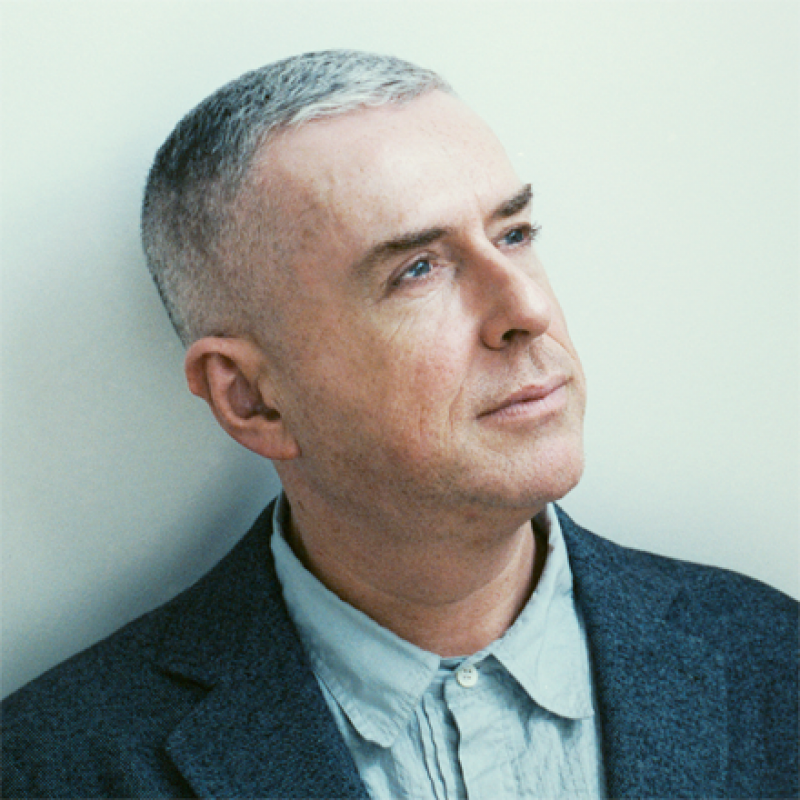
Holly Johnson (b 1960) is most famous for being lead singer of 1980s pop sensation Frankie Goes to Hollywood. He was born and raised in Liverpool where, as a teenager he threw himself wholeheartedly into the city’s post-punk scene centred around the club Eric’s.
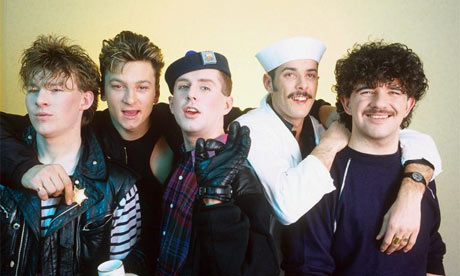 iconoclast Jayne Casey and primarily famous for containing the KLF’s Bill Drummond, Teardrop Explodes/Food Records’ Dave Balfe, Siouxsie & the Banshees’ drummer Budgie, and Lightning Seeds’ Ian Broudie during its short career.
iconoclast Jayne Casey and primarily famous for containing the KLF’s Bill Drummond, Teardrop Explodes/Food Records’ Dave Balfe, Siouxsie & the Banshees’ drummer Budgie, and Lightning Seeds’ Ian Broudie during its short career.Johnson released a couple of independent solo singles on the cusp of the Eighties, “Yankee Rose” and “Hobo Joe”, but these had little impact. It was his next project that would be his making. Frankie Goes to Hollywood, named for a quotation from a poster by Belgian artist-designer Guy Peellaert, bubbled under during the early Eighties, combining a leather clone gay image with stark indie-funk. Appearances on John Peel’s radio show and TV show The Tube persuaded Trevor Horn, successful producer of bands such as Dollar and ABC, to sign them to his new ZTT label.
Frankie’s debut single “Relax”, a raucous electro-funk sex explosion, was released in 1983, banned by Radio 1 and became a massive-selling chart-topper, followed by the enormous, nuclear war-centric summer hit “Two Tribes”, an album, Welcome to the Pleasuredome, and the perennial Christmas single “The Power of Love”. The band bestrode 1984 like a colossus, their “Frankie say…” T-shirts eternal signifiers of the decade. Johnson and singer/dancer Paul Rutherford became vocal gay icons in an era when there were very few such figureheads visible in the media.
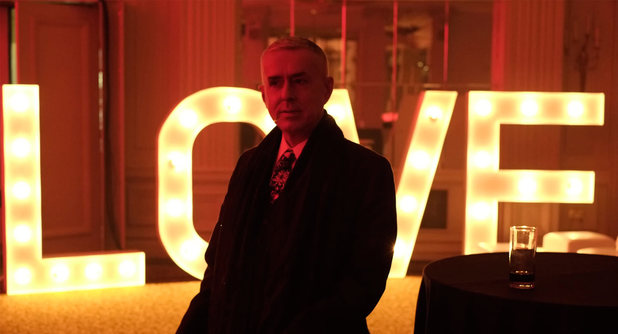 When the band returned with their second album Liverpool in 1986, it produced gradually dwindling hits but their moment had passed. Johnson left the band in 1987 in acrimonious circumstances and was quickly the subject of an injunction on his recording career by ZTT, a case he successfully fought in court, going on to have a solo No 1 album with Blast alongside singles such as “Americanos” and “Love Train”. However, his second solo album, 1991’s Dreams That Money Can’t Buy, flopped and Johnson, who was diagnosed HIV-positive the same year, disappeared from public life to focus on his health. There was an autobiography, A Bone in My Flute, in 1994 and another album, Soulstream, in 1999 but he decided to focus primarily on an interest in visual art, attending the Royal College of Art and later successfully exhibiting his work. Only in more recent years has Johnson started fully to return to the public eye, now releasing a new album, the disco, house and electro-pop-inflected Europa, co-produced by rising dance music talent Mark Ralph and featuring appearances by Vangelis, Roxy Music’s Phil Manzanera, Durutti Column’s Vini Reilly and the late house DJ Frankie Knuckles.
When the band returned with their second album Liverpool in 1986, it produced gradually dwindling hits but their moment had passed. Johnson left the band in 1987 in acrimonious circumstances and was quickly the subject of an injunction on his recording career by ZTT, a case he successfully fought in court, going on to have a solo No 1 album with Blast alongside singles such as “Americanos” and “Love Train”. However, his second solo album, 1991’s Dreams That Money Can’t Buy, flopped and Johnson, who was diagnosed HIV-positive the same year, disappeared from public life to focus on his health. There was an autobiography, A Bone in My Flute, in 1994 and another album, Soulstream, in 1999 but he decided to focus primarily on an interest in visual art, attending the Royal College of Art and later successfully exhibiting his work. Only in more recent years has Johnson started fully to return to the public eye, now releasing a new album, the disco, house and electro-pop-inflected Europa, co-produced by rising dance music talent Mark Ralph and featuring appearances by Vangelis, Roxy Music’s Phil Manzanera, Durutti Column’s Vini Reilly and the late house DJ Frankie Knuckles.
We meet in a café near his home in Parsons Green, west London. He is wearing a buttoned-up shirt, a neat jacket and black-framed glasses, with iron grey hair and mischievous eyes. We drink non-alcoholic ginger spritzers as he chats with bubbly, wry, considered charm in his distinctive Scouse voice. Talk turns to his longterm partner, Wolfgang Kuhle...
THOMAS H GREEN: He's not just your life partner, he's involved with your career?
HOLLY JOHNSON: He deals with the live side of things, the only side of things that’s profitable, apparently, so he ignores what he sees as the loss leader – which is the new album.
What is your primary source of income these days – music or art?
Oh, it’s never been from art. I’m a label owner and the sole employee. This is my day job, I don’t know how artists do it, I really don’t.
The ones that really make it seem to be richer than anybody.
They’re commodity brokers, though, aren’t they? Not really artists in the true sense of the word. The better ones like Jeff Koons tend not to even touch their artworks. It’s a whole new world, not like being an artist living in a garret or a painter making prints to survive. I know artists like that. At college I worked next to MA students who were £30,000 in debt before they’d even left the Royal College of Art.
You went to the Royal College of Art in 2000?
2001, I think, a part-time course. I tended to turn up more often than the regular students and do quite a bit more work because I was keen.
Unlike some – like me, in truth - who came straight from school and spent university dossing about?
I hadn’t done a BA and a foundation before and wasn’t worn out by the academic aspect. I didn’t have to engage in that too much either. I’ve done enough writing, thank you very much, in my life. I just wanted to get on with it, with making work.
I have seen a work by you that’s a Union Jack with its colours dripping – is that part of the album artwork?
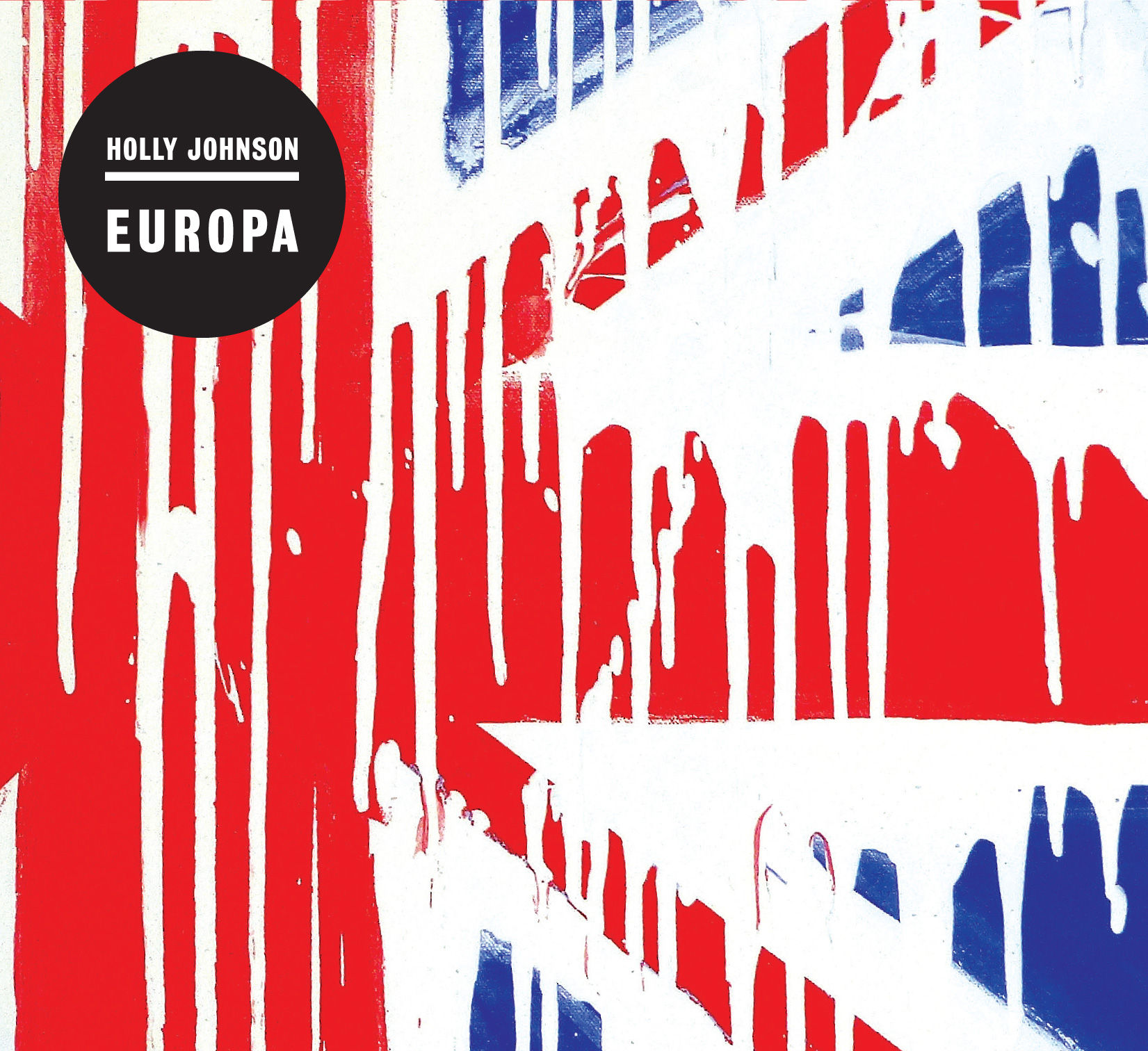 That is the album artwork [pictured right]. That was painted in 2002 at college. A group of the more wayward students had organised an exhibition called Ausgang at Studio Voltaire. Some of them had actually exhibited before at an interestingly named exhibition called The Consumerist Theatre of Desire. This Ausgang exhibition was an anti-celebration of the Queen’s Golden Jubilee. I went into a bit of a time-warp and started doing lots of HRH Queen Elizabeth II using the same Cecil Beaton photograph that Andy Warhol had used and that Jamie Reid used for the Silver Jubilee in 1977, taking away the safety pin, of course, and replacing it with a skull. They were prints and somehow the painting always went alongside them. The Union Jack image came out of that. The UK After The Rain title comes from Europe After The Rain II [an extraordinary Max Ernst painting from 1942], the rain being the reign of terror of World War II. The image seemed particularly appropriate now with the [album] title Europa and the Scottish debate.
That is the album artwork [pictured right]. That was painted in 2002 at college. A group of the more wayward students had organised an exhibition called Ausgang at Studio Voltaire. Some of them had actually exhibited before at an interestingly named exhibition called The Consumerist Theatre of Desire. This Ausgang exhibition was an anti-celebration of the Queen’s Golden Jubilee. I went into a bit of a time-warp and started doing lots of HRH Queen Elizabeth II using the same Cecil Beaton photograph that Andy Warhol had used and that Jamie Reid used for the Silver Jubilee in 1977, taking away the safety pin, of course, and replacing it with a skull. They were prints and somehow the painting always went alongside them. The Union Jack image came out of that. The UK After The Rain title comes from Europe After The Rain II [an extraordinary Max Ernst painting from 1942], the rain being the reign of terror of World War II. The image seemed particularly appropriate now with the [album] title Europa and the Scottish debate.
The TV idents for coverage of the Scottish devolution debate featured a dripping Union Jack.
I think they ripped it off. It has been exhibited several times, at the Royal Academy of Arts in 2002 and an exhibition in the Mall where even Banksy ripped it off with a monkey instead of the queen. So it’s great to be ripped off. Very flattering.
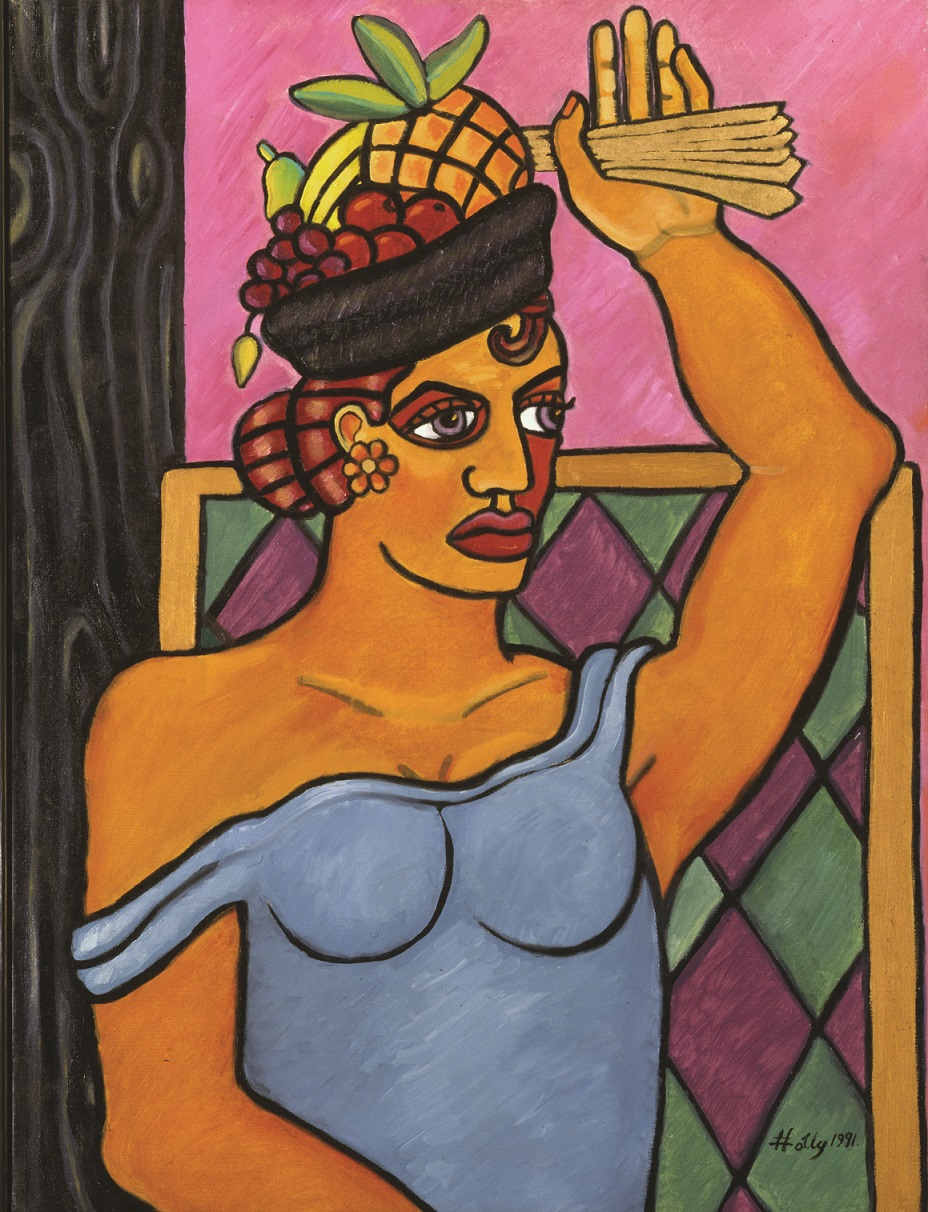 [We talk a while about art, from Frida Kahlo to Tom of Finland - one of Holly Johnson's paintings is pictured left - ending up speaking of the ocean liner, the Queen Mary, which features in the album artwork and…] which my partner Wolfgang worked on as a very young man.
[We talk a while about art, from Frida Kahlo to Tom of Finland - one of Holly Johnson's paintings is pictured left - ending up speaking of the ocean liner, the Queen Mary, which features in the album artwork and…] which my partner Wolfgang worked on as a very young man.
He’s not the same age as you, then?
No, he’s another generation.
You met him 30 years ago amidst the madness [of Frankie Goes To Hollywood’s success]?
Well, the madness was just beginning in April 1984. We’d had a No.1 single. It was the night I was ordered – or asked – to come into the studio at 11.30 PM to do the vocal for “Two Tribes”, that was when I met him in what was then the centre of the gay universe.
Heaven [club in Charing Cross]?
No, Earls Court. Heaven was kind of a centre but in terms of geography Earls Court was much more important in those days. Subsequently it was usurped by Vauxhall and Soho. There’s only one little outpost of gayness left in Earls Court now. It had been a gay centre for a long time where the aristocracy would go to pick up enlisted men who, for a few bob, would oblige. Wolfgang has been my personal manager since the end of 1984. The climate was quite different then and I needed, perhaps, someone who was more sensible and less inclined to wayward behaviour to anchor myself to. Someone had to get up in the morning to do all the interviews and I was the self-designated person who had to forego recreational drugs and alcohol in order to do that job.
Watch the uncensored video for Frankie Goes to Hollywoor "Relax"
There were three elements to the band as it was perceived from outside – you, Paul Rutherford and the other three [Brian Nash, guitar, Mark O’Toole, bass, and Peter Gill, drums]…
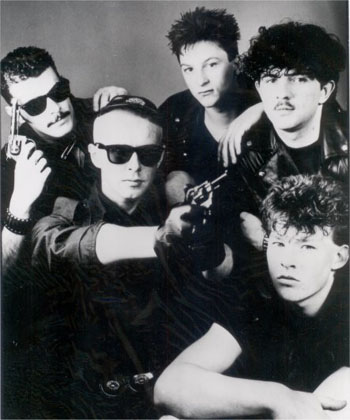 That was label propaganda. It wasn’t actually like that. There weren’t factions. Those factions were created in someone’s imagination.
That was label propaganda. It wasn’t actually like that. There weren’t factions. Those factions were created in someone’s imagination.
And transferred to all our imaginations at the time.
Exactly, very successfully, as well as the concept that we were five idiots plucked from degradation in Liverpool by the act of some Svengali figure and transformed. None of that was true but it suited the label’s PR.
Well, in Paul Morley ZTT, the label, had an expert writer and propaganda merchant.
He was an expert writer, I’ll give him that, but he’s only ever really been his own PR person. There was someone else responsible for Frankie Goes To Hollywood’s PR and that was Rob Partridge and Regine Moylett who went onto great things with U2 and it was Island who were the record label. ZTT were merely a production house, that was the fact of the matter. They weren’t really a label as such but a production house with knobs on.
You famously took them to court.
No, they famously took me to court. Everyone seems to think I sued them but I didn’t. All I did was point out the unfair nature of their recording agreement and decided the environment was too toxic for me to continue and I was leaving them and the group. They put an injunction on me, they faxed every label in the known universe not to sign me and have been slagging me ever since.
Was that a difficult time, 1987 to 1989, while that court case was going on?
It was very stressful. I was kind of in hoc to MCA before I was even out of the ZTT agreement. MCA loaned me for £50,000 to fund the court case and it was only a loan. I had these huge tax problems over my head and was trying to write songs for a solo album. I was reasonably young, 27 at the time. Youth is resilient.
So the success of the album Blast must have seemed like a vindication.
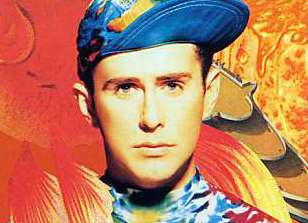 Absolutely that. The week it got to No.1 I was very… vindicated. That was a transient moment of victory in retrospect. I’d been on the promotional trail, touring and on the endless European television shows that existed in those days, for years and years, since the beginning of ’84. Towards the end of ’89, with a couple of hit singles and a platinum-selling album. I started to get health worries that ultimately came to consume my life for quite a number of years.
Absolutely that. The week it got to No.1 I was very… vindicated. That was a transient moment of victory in retrospect. I’d been on the promotional trail, touring and on the endless European television shows that existed in those days, for years and years, since the beginning of ’84. Towards the end of ’89, with a couple of hit singles and a platinum-selling album. I started to get health worries that ultimately came to consume my life for quite a number of years.
Do you drink now?
I haven’t drunk much since the mid-Eighties. I gave up smoking and drinking completely – more or less – in 1991. Actually I gave up smoking before my health news because I knew there was something very, very wrong. Because I’d been losing friends from mid-1984 onwards I kind of knew what that was, deep down, although I lived in denial for several years, as you do.
What was actually going on with AIDS and HIV, the way it was devastating hordes of people, is a piece of history that wasn’t much in mainstream culture until Dallas Buyers Club cast a spotlight on it. Did you enjoy that film?
I did. It evoked many aspects of that period of my life, the self-education about medical matters that a lot of people in my position undertook. There were amazing things like the treatment newsletter and mobilisation of the gay community as had never happened before. It was excellent. There was politicisation occurring and an attempt to have new drugs released quickly into the marketplace, some of which did me more damage than good. One of them gave me pancreatitis which I suffered from for years – it’s quite a painful condition. You’d try anything at that time in a desperation for more life. Some people refused to take the medication on offer, believing it to be toxic, which is outlined in the film, but I took AZT for 15 years and believe I benefited from it. It kept me alive – in a half alive state, anyway – for five or six years until the advent of combination therapy in 1996. I’ve had spectacular ups and spectacular downs.
How much is nature and how much is nurture in your life story?
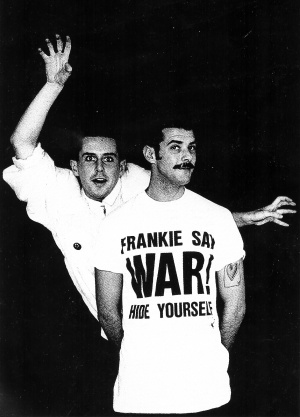 Oh, I think it’s all utter chaos and chance. There was of course a little boy who started to write poetry at quite a young age and bought himself a recorder and learnt rudimentary treble clef on his own in a culture of mainly football in Liverpool. There was also the Beatles, of course, and the amazing Technicolor of the Lonely Hearts Club Band album cover that Peter Blake and Jann Howarth created, a living collage, an amazing thing for a young lad to step into, like Judy Garland’s house arriving in Munchkinland. It was very colourful whereas the Beatles had previously been black and white – black and white television, black and white wallpaper that my sister had in her room, a black plastic wig that my brother wore, etc. Early psychedelia was one of my first introductions to pop music.
Oh, I think it’s all utter chaos and chance. There was of course a little boy who started to write poetry at quite a young age and bought himself a recorder and learnt rudimentary treble clef on his own in a culture of mainly football in Liverpool. There was also the Beatles, of course, and the amazing Technicolor of the Lonely Hearts Club Band album cover that Peter Blake and Jann Howarth created, a living collage, an amazing thing for a young lad to step into, like Judy Garland’s house arriving in Munchkinland. It was very colourful whereas the Beatles had previously been black and white – black and white television, black and white wallpaper that my sister had in her room, a black plastic wig that my brother wore, etc. Early psychedelia was one of my first introductions to pop music.
What’s your earliest memory?
I remember listening to the radio and “Space Oddity” coming on.
That was 1969, you were nine years old.
I already was in the church choir in St Mary’s, Wavertree, and I’d been taken by Mr Sole, the organist and choirmaster to see 2001: A Space Odyssey, which was completely bemusing and, again, had its acid trip elements. At eight or nine years old deciphering that film was nigh on impossible. He did explain to us that HAL was a very truthful computer and didn’t like lying – which was perhaps a churchy take on it. I saw it in the Abbey Cinerama which was a giant art deco palace, an amazing cinema – it’s probably a supermarket now or some such.
Watch the video for "Americanos" (1989) by Holly Johnson
How often do you go back to Liverpool?
Not enough. My take on Liverpool when I lived there was it was a miserable, depressing, riot-torn place with over a million people in it. During the Eighties around half a million of us left and because of that it’s now the most wonderful place in the world to visit. The Georgian quarter was the riot-torn Toxteth which was where I lived in a housing association flat. It was full of street walkers and curb-crawlers at night but round Hope Street now there are beautiful cafes and lovely hotels and restaurants.
Do you have family there?
Yes, I go in November to visit my mum on her birthday, and my sister who I’m quite close to, and other family members. I used to see my grandmother until last year but… she had a good innings, as they say.
What did your grandmother make of Frankie’s success?
My grandmother and my maiden aunt loved it. They described themselves as Sex and Horror [a reference to lyrics from “Two Tribes”] and were very jolly about it all, very amused. My aunt took a quite an interest in everything I wore on television. There were pressures for other members of the family, particularly the gay thing was stressful for them. They were different times and it’s hard to imagine for a gay man of today quite what it was like. All the work now has been done, boys and girls, teenagers coming out as gay, have a whole world of established reference material, magazines, openly gay bars and nightclubs. To me it was much more a hidden twilight world of the homosexual, up back alleys, nods and winks to get into various places. It was a more exciting world. It had its furtive pleasures but now it’s all very different.
Watch the video for Frankie Goes to Hollywood "Two Tribes"
The homogenisation of subcultures makes them safer but takes some of the thrill out of them. Large parts of New York, for example, were once dangerous but excitingly edgy. Now they’ve become a New York theme park, to some extent.
I haven’t been to New York for a very long time. There was, for many years, a restriction for HIV positive people. With Obama came a repeal of that situation but I haven’t had a reason to go. I hear it’s really a place for the wealthy, a yuppie culture has prevailed, but I don’t know.
“So Much It Hurts” from your new album is a passionate unrequited love song? Is it telling us something?
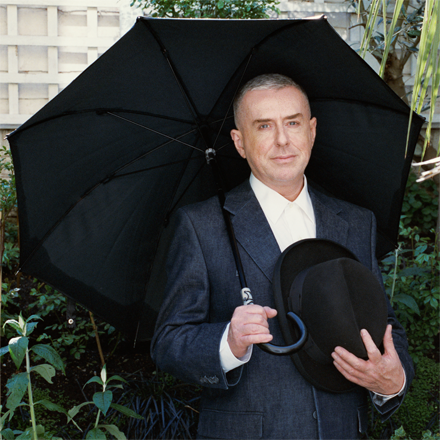 Who hasn’t experienced that in their lives? I drew on memory and midlife crisis. I’m not going to pretend that because I’ve been in a 30-year relationship I haven’t had crushes or fantasies about other people, fairly obsessive ones. It was one of my favourite songs on the album but it causes a bit of controversy when it’s played at home. It’s called “that heart on your sleeve record”.
Who hasn’t experienced that in their lives? I drew on memory and midlife crisis. I’m not going to pretend that because I’ve been in a 30-year relationship I haven’t had crushes or fantasies about other people, fairly obsessive ones. It was one of my favourite songs on the album but it causes a bit of controversy when it’s played at home. It’s called “that heart on your sleeve record”.
The singles from your new album, which open it, didn’t draw me in, but then it gets going and there’s a real disco and house flavour.
That was partly due to my history and partly due to my collaborative partner Mark Ralph who specialises in a particular type of electronic dance and house music. In recent years he’s worked with Hot Chip, Hot Natured, 2 Bears, Clean Bandit, he worked as an engineer with Franz Ferdinand. It also represents our love of vintage synthesizers. I’d bring along my synth-in-a-suitcase, the EMS Synthi that famously [Brian] Eno used on “Heroes” and that Berlin trilogy of albums [by David Bowie]. Mine belonged to Trisram Cary, an Anglo-Australian pioneer of electronic music. Mark also owns a desk that was built by Conny Plank who engineered “Autobahn” [by Kraftwerk].
The album’s title track, “Europa”, has an electronic flavour that sounds like Frankie Goes To Hollywood.
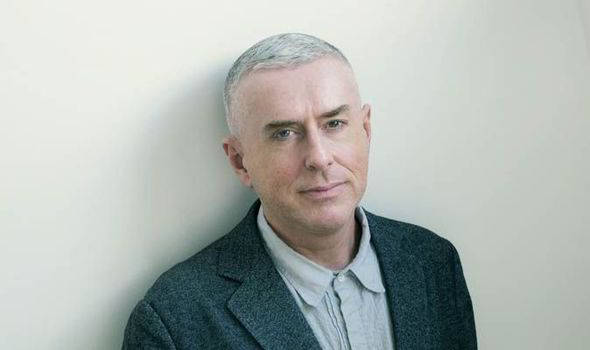 Yeah, it has the bombast in the vocal delivery. It was written originally just subsequent to Frankie and Blast when I was summoned by Vangelis via his assistant who had been David Bowie’s A&R man in the UK for RCA in the 1970s. I was quite reluctant – spiritually I wasn’t very well at the time. I was knackered but they got me and Wolfgang over to Paris where Vangelis was living in the Plaza Athénée opposite Marlene Dietrich’s flat. He had his young girlfriend with him, Laura Metaxa, and he took me to this bunker underground studio in the Bois de Boulogne, Studio Mega, where all these synths were laid out and I had an idea what I was going to sing over the music he’d sent to me on Digital Audio Tape. I sang the vocal and Roman Polanski turned up with a young Emmanuelle Seigner and a posse of choreographers. He said he was going to direct the video and she was going to dance in it. After the weekend had come to a close and I had come back to England to record Dreams That Money Can’t Buy, I never heard a peep again about the song from anyone.It was almost like a bit of a dream. I think the location and the Berlin Wall informed the subject matter of the song. I kept hold of the DAT all this time. I idolised Vangelis for the Bladerunner soundtrack. We used to use bits of that for the video production at Frankie Goes To Hollywood concerts, the “tears in the rain” sequence. I was going through my archives and found this song. I always wanted to record it.
Yeah, it has the bombast in the vocal delivery. It was written originally just subsequent to Frankie and Blast when I was summoned by Vangelis via his assistant who had been David Bowie’s A&R man in the UK for RCA in the 1970s. I was quite reluctant – spiritually I wasn’t very well at the time. I was knackered but they got me and Wolfgang over to Paris where Vangelis was living in the Plaza Athénée opposite Marlene Dietrich’s flat. He had his young girlfriend with him, Laura Metaxa, and he took me to this bunker underground studio in the Bois de Boulogne, Studio Mega, where all these synths were laid out and I had an idea what I was going to sing over the music he’d sent to me on Digital Audio Tape. I sang the vocal and Roman Polanski turned up with a young Emmanuelle Seigner and a posse of choreographers. He said he was going to direct the video and she was going to dance in it. After the weekend had come to a close and I had come back to England to record Dreams That Money Can’t Buy, I never heard a peep again about the song from anyone.It was almost like a bit of a dream. I think the location and the Berlin Wall informed the subject matter of the song. I kept hold of the DAT all this time. I idolised Vangelis for the Bladerunner soundtrack. We used to use bits of that for the video production at Frankie Goes To Hollywood concerts, the “tears in the rain” sequence. I was going through my archives and found this song. I always wanted to record it.
So how did you get hold of Vangelis? I was supposed to interview him once but he blew me out – twice. Apparently he does that all the time.
He did that with me too - once. It took me two years to track him down. When finally I contacted him it was via Cherry Vanilla, she was press attaché for Bowie and the Main Man organisation when he went to the US in 1970s, then formed her own band, also called Cherry Vanilla, who I first saw perform at Eric’s in 1978, a post-Warholian character who had friends like [punk photographer] Leee Black Childers and [transsexual punk 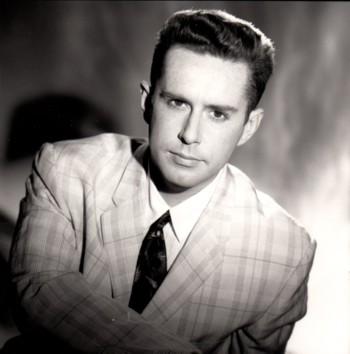 singer] Wayne County. Strangely, she had a company called Europa. I spoke to her and said, “Why is it called that?” She said, “Because I heard that demo many years ago – I love that song.” I said, “Well actually this is why I’m ringing you.” In the end I got him to play on the version I played with Mark [Ralph]. I actually went to Paris again and booked the studio he’d designated. He had the same sound engineer, Philippe Colonna, that he’d worked with on the original recording. I’m very happy with the resulting new version and the fact I got the maestro to play on it. He used one of his seven Yamaha CS synths…
singer] Wayne County. Strangely, she had a company called Europa. I spoke to her and said, “Why is it called that?” She said, “Because I heard that demo many years ago – I love that song.” I said, “Well actually this is why I’m ringing you.” In the end I got him to play on the version I played with Mark [Ralph]. I actually went to Paris again and booked the studio he’d designated. He had the same sound engineer, Philippe Colonna, that he’d worked with on the original recording. I’m very happy with the resulting new version and the fact I got the maestro to play on it. He used one of his seven Yamaha CS synths…
What do you think about the way disco has become so distanced in popular perception from its black gay roots in the US? Does it annoy you?
It has done but my take tends to me more European. There was also Giorgio Moroder, Cerrone and Kraftwerk were a kind of Germanic answer to disco in a completely artful European way. As a teenager I was bombarded by both sides, 20-minute mixes of Donna Summer on the dancefloor of the Masquerade club in Liverpool and at home, [Kraftwerk album] Man Machine, so they’re all embedded in my DNA.
Big in Japan [pictured below right - in foreground] had a very different sound.
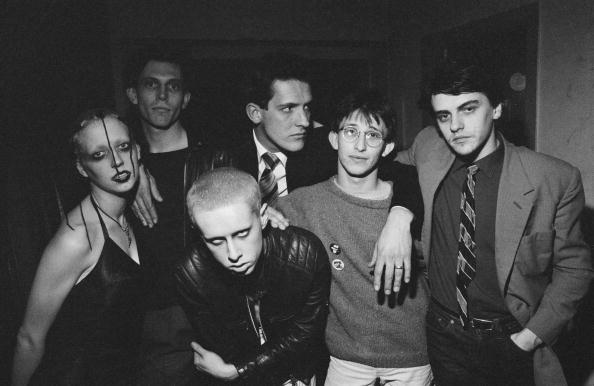 Musically they weren’t really my vehicle but it failed to function after I was discarded. I was a bit-part player but some bit parts are more important than others. Somehow my enthusiasm and creative bent were missing after I departed and it imploded three months later.
Musically they weren’t really my vehicle but it failed to function after I was discarded. I was a bit-part player but some bit parts are more important than others. Somehow my enthusiasm and creative bent were missing after I departed and it imploded three months later.
Their sound was really very oddball rather than punk.
I’d call it art rock really. There were several ex-art college boys in the group, Bill [Drummond] and Budgie, arty visuals as well as diverse subject matter. The songs I was mainly responsible for, lyrically, were “S.C.U.M”…
The Society for Cutting Up Men.
Yes, after Valerie Solanas who famously shot Warhol and “Suicide A-Go-Go” which was a kind of William Burroughs-esque cut-up collage.
Listen to "Suicide A-Go-Go" by Big in Japan
Who was last person from that band you saw most recently?
I see Ian [Broudie] quite regularly. He lives over in Portabello. We meet up quite regularly. I went over to his birthday do after seeing the Brian Epstein play [The Man Who Made The Beatles]. I really like Ian.
Frankie owned 1984 in a way bands haven’t really owned a year since.
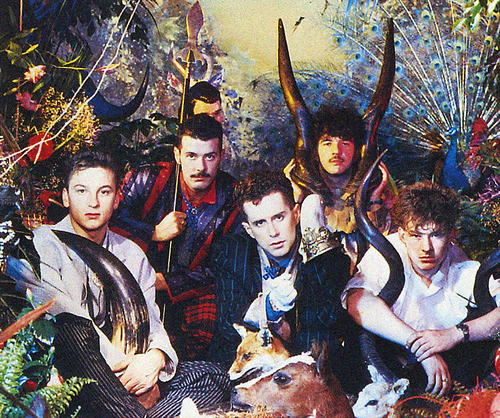 It wasn’t just a pop phenomenon, it was a cultural moment and our debut album was an event in a way that hasn’t really been replicated.
It wasn’t just a pop phenomenon, it was a cultural moment and our debut album was an event in a way that hasn’t really been replicated.
It must have made it hard to follow that up?
It was impossible. That’s the moment it should have ended. We were even advised to do so although I didn’t get the memo. Leave now before Liverpool, before the huge costs chalked up by that second album. It was an out of control machine by that point. I was dragged along in the wake of it. I had been in the driving seat initially but by then I was just hanging on for dear life. It felt so good to get out. It was torture by the end.
The band seemed to disappear in 1985 and 1986 which didn’t help the momentum.
Because we were on this massive world tour, going through America and Japan, completely exhausted. ’85 was like one complete tour – 77 dates.
I went to see Frankie at the Hammersmith Odeon in April 1985.
I had the flu and didn’t know you could reschedule. I took Night Nurse and soldiered on.
George Michael came on at the end.
People tell me that but I have no memory of George Michael coming on. I remember Gary Glitter turning up backstage in full glitter regalia and not saying a word, doing his trademark glare and walking out again. That was bizarre. I do remember George Michael turning up at the Birmingham Odeon, and there are photos of that. Maybe he did pop on.
He came on and sang on a song. He sang along to “Relax” for the encore.
No, no, no, that never happened.
He did, honestly.
No, no, no.
Every night of your run at Hammersmith Odeon there was a different guest at the end for the “Relax” encore. Lemmy [from Motörhead] was one of them, which I wasn’t there for, and George Michael was another.
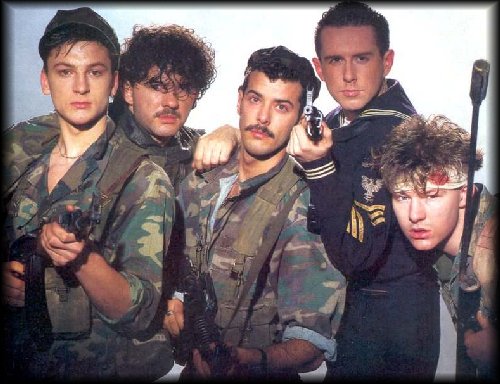 Lemmy was much cooler than closet case George Michael. I wouldn’t have sanctioned that. They must have done it without me knowing. Maybe he did come on for the final version of “Relax”, doing backing vocals with Paul [Rutherford], but he certainly came nowhere near me. I’ve kissed Lemmy and lived to tell the tale. I just thought it would be something to brag about in the future. I met him first when he was miming for Kirsty MacColl in Germany on a programme called Musik Laden. Kirsty was quite a character and she introduced herself at the airport saying, “Come and meet Lemmy, he’s going to mime guitar for me.” There was only one place to go in Bremen after performing on Muzik Laden. I think Jermaine Jackson was there being serene. Lemmy was also there at Wembley Stadium on the night there was a bit of a fracas between band members [January 1987 when a scuffle between Johnson and Mark O’Toole precipitated the end of the band]. He said, “Holly, don’t leave the band, I was once in the band and left and it was never the same afterwards.” I think he was talking about Hawkwind.
Lemmy was much cooler than closet case George Michael. I wouldn’t have sanctioned that. They must have done it without me knowing. Maybe he did come on for the final version of “Relax”, doing backing vocals with Paul [Rutherford], but he certainly came nowhere near me. I’ve kissed Lemmy and lived to tell the tale. I just thought it would be something to brag about in the future. I met him first when he was miming for Kirsty MacColl in Germany on a programme called Musik Laden. Kirsty was quite a character and she introduced herself at the airport saying, “Come and meet Lemmy, he’s going to mime guitar for me.” There was only one place to go in Bremen after performing on Muzik Laden. I think Jermaine Jackson was there being serene. Lemmy was also there at Wembley Stadium on the night there was a bit of a fracas between band members [January 1987 when a scuffle between Johnson and Mark O’Toole precipitated the end of the band]. He said, “Holly, don’t leave the band, I was once in the band and left and it was never the same afterwards.” I think he was talking about Hawkwind.
To the generation I belong to, teens in the early Eighties, there were very few openly gay men in the pop world – Marc Almond, yourself, and another of your peers who currently has new music appearing after a long break, Jimmy Somerville.
I saw Marc and Jimmy at a festival up north recently. In those days it was handbags at dawn with Boy George. He wrote to Sounds magazine saying I gave gay people a bad name. Jimmy was voraciously out of the closet in a politicised way where my viewpoint was more “Fuck you if you don’t like it!” I wasn’t really asking for acceptance, I just wasn’t really wanting to have anything to do with people who couldn’t accept it. It was maybe more of a Scouse view where I didn’t really care. Jimmy was more politicised. It’s brilliant that he pops up and gets his full due playing to the miners in [the film] Pride, which also has Frankie on the soundtrack. It also has “Love and Pride” by King which was, perhaps… a bit of an odd choice. You can’t really see that film without shedding a tear and having a laugh.
What do you think of the album Liverpool now?
There’s some really great tracks on it, “Maximum Joy” I absolutely love. “Is Anybody Out There” was written at a time when I was losing friends at a terrible rate. Wolfgang was actually in hospital in Holland while I was recording it with some unknown illness. It turned out he wasn’t HIV positive but we thought for many years he was. I love that song. There are some good tracks. It’s the darker side of the coin to Welcome to the Pleasuredome. “Rage Hard” is a bugger to perform live because of the vocal range required. At festivals you have to do the hits and that was a bona fide hit, Top 5, and invariably I trip up somewhere along the line but its got a kind of weight to it; it’s not pop froth.
Watch Frankie Goes To Hollywood perform "The Power of Love" on Top of the Pops, Christmas 1984
I listened to it the other day for the first time since the Eighties and it still has a shiny production sheen but it is tougher than the first album.
There’s one track called “For Heaven’s Sake” that’s really good. The band were more confident in themselves, perhaps overly so, and insisted on playing on the record rather than having a machine simulate their parts, which had occurred on Welcome to the Pleasuredome. This is the crux of the musical differences that occurred within the group. Trevor [Horn] had promised me he’d come to Holland and record the album and he didn’t turn up – that was the beginning of my deep dissatisfaction with the label. By that time the rest of the band were living at night. They would come into the recording studio at five or six in the evening and then start work, whereas I was going to hospital to see Wolfgang at 11.00 AM and wanting to perform vocals when I was fresh. I was living a separate life from the band.
Watch the video for Frankie Goes to Hollywood "Rage Hard"
Did you have a decadent time during 1984?
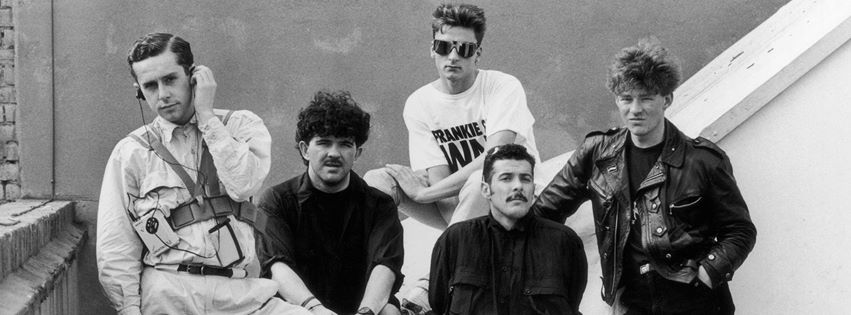 Not particularly. My decadent times had all happened previously to 1984. I was working too hard. The band were certainly having a decadent time. Someone had to stay sober.
Not particularly. My decadent times had all happened previously to 1984. I was working too hard. The band were certainly having a decadent time. Someone had to stay sober.
The lengthy song “Welcome to Pleasuredome” used to be regularly played by Ron Hardy at the Muzic Box in Chicago, one of the key venues and eras in the creation of house music.
I was aware of that. There’s a DJ I know called Honey Dijon who was born in Chicago and came to see us at the Bismarck Theatre there who was part of that younger Chicago house set and who still, to this day, plays “Welcome to the Pleasuredome” in its entirety. I think it was quite influential and the whole remix culture that “Welcome to the Pleasurerdome” spawned totally influenced dance music to come. Before Frankie there weren’t multiple remixers of any song. I don’t take any credit – that was the idea of Dave Robinson, MD of Island Records, who wanted to extend our records lives, keep them at No.1 for another week by getting the boys to turn out another remix.
Listen to the full 14 minute album version of "Welcome to the Pleasuredome"
Does an obsessive fanbase for band still exist?
There are file-sharing forums. I try to avoid them as I’m always painted as the demon of the group as I left and their fantasy of the band reforming is spoiled because of me.
Why did you agree to do that VH1 Bands Reunited TV special in 2003 with Frankie, but then drop out?
The story is I got a call from Richard Blade who had been a really supportive DJ in LA on the station KROQ, an English guy who played “Two Tribes” endlessly until people paid attention. I got a call from him saying he’d been consulting on a TV programme and would love to interview me about the old days. I said, “OK,” as a thank you. At the designated time we opened the door and 15 people trooped into my house, not the usual one man and a camera, a whole mobile recording unit parked outside in the street. They came in and took over my studio. I thought it was really odd. During the interview they popped the question – would I come along another time to meet the rest of the band and play a song. I laughed my head off and said, “I doubt that will ever happen.” When the cameras were turned off I said unequivocally I wouldn’t record ad hoc for a TV programme so they knew all the time I wouldn’t. Then they started applying pressure, sending round a gay member of the crew to persuade me. He said, Look, Holly, if you don’t turn up we’re not going to feature Frankie in the series at all, it will disappoint a lot of people.” I said, “OK, I’ll come along for old times sake and leave.” I met the band, said “Hi,” participated in an interview but when the series came out they’d edited in such a way it looked like I hadn’t turned up for the gig. Weird. They even got other members of the band to collude with them and pretend I hadn’t turned up. That’s what happened.
What do you make of Gabrielle Aplin’s version of “The Power of Love”?
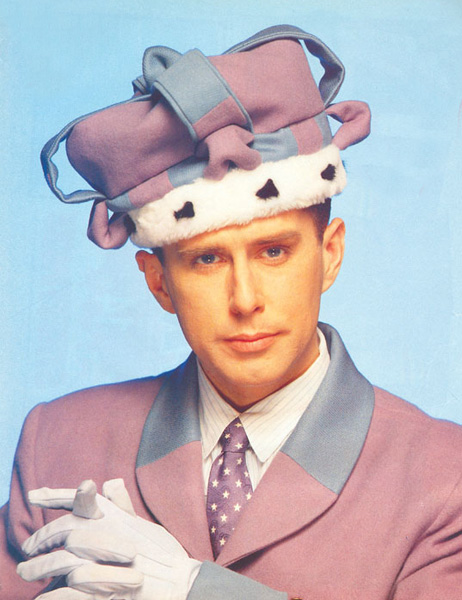 I won’t comment on cover versions. I’m not saying, “No comment,” as I will qualify that statement. Whether it be Il Divo’s version of “The Power of Love” or Blondie’s recent version of “Relax”, they have their own value and live in a separate universe to the song as originated by its writer. There’s moments when you’re very flattered that it’s come to the attention of Blondie, a fantastic band. However, those versions come to people fresh, a new generation, and my version means nothing to them – the version they hear does. I’m not going to piss all over someone else’s version of the song.
I won’t comment on cover versions. I’m not saying, “No comment,” as I will qualify that statement. Whether it be Il Divo’s version of “The Power of Love” or Blondie’s recent version of “Relax”, they have their own value and live in a separate universe to the song as originated by its writer. There’s moments when you’re very flattered that it’s come to the attention of Blondie, a fantastic band. However, those versions come to people fresh, a new generation, and my version means nothing to them – the version they hear does. I’m not going to piss all over someone else’s version of the song.
I didn’t dare tell people for years that the first version of “Born to Run” I heard was Frankie’s
Yes, some Springsteen fans were horrified Frankie did that but if you listen to it now you can hear it’s done in a reverential way, perhaps a bit of camping up and punk energy, but it certainly wasn’t taking the piss. Many people who weren’t dyed-in-the-wool Spingsteen fans cite it as a definitive version.
When I first heard Springsteen’s version it sounded a bit muddy by comparison.
It sounds like an old codger singing by comparison, but it is great writing, a great song. I knew I had to give it the full monty of vocal capability. We performed it on Saturday Night Live. I think that’s why we did it in the first place. We were booked into some tour of America in November 1984 so performed “Two Tribes” and “Born to Run”.
Was the commercial failure of your second solo album, Dreams That Money Can’t Buy, an immense disappointment?
It was a prophetic title! It was deleted almost immediately, only a couple of thousand copies were printed. It was written under pressure. I’d had this validation of a No.1 album and suddenly found myself with a contractual obligation to deliver an album in a certain time period. I was chained to the keyboard and sampling machine for what seemed like an eternity. I even turned down a tour at the end of 1989, just went back into the grubby basement where I had my studio at the time. I still stand by some of the songs – “Penny Arcade”, “I Need Your Love” and even “Boyfriend ‘65” which I got Kirsty MacColl to sing on. There’s a blistering saxophone solo by Courtney Pine on “Penny Arcade”, but the tide had turned in music-land and in my life. The person who signed me to MCA was either pushed out or left and, as so often happens in that situation, with my champion gone the label turned on me. In a way it was blessing because soon after that I was very ill and had a whole other challenge in my life.
Why were Frankie, excepting a small spoken excerpt by you on the B-side to “Do They Know It’s Christmas?”, not involved with Band Aid and Live Aid?
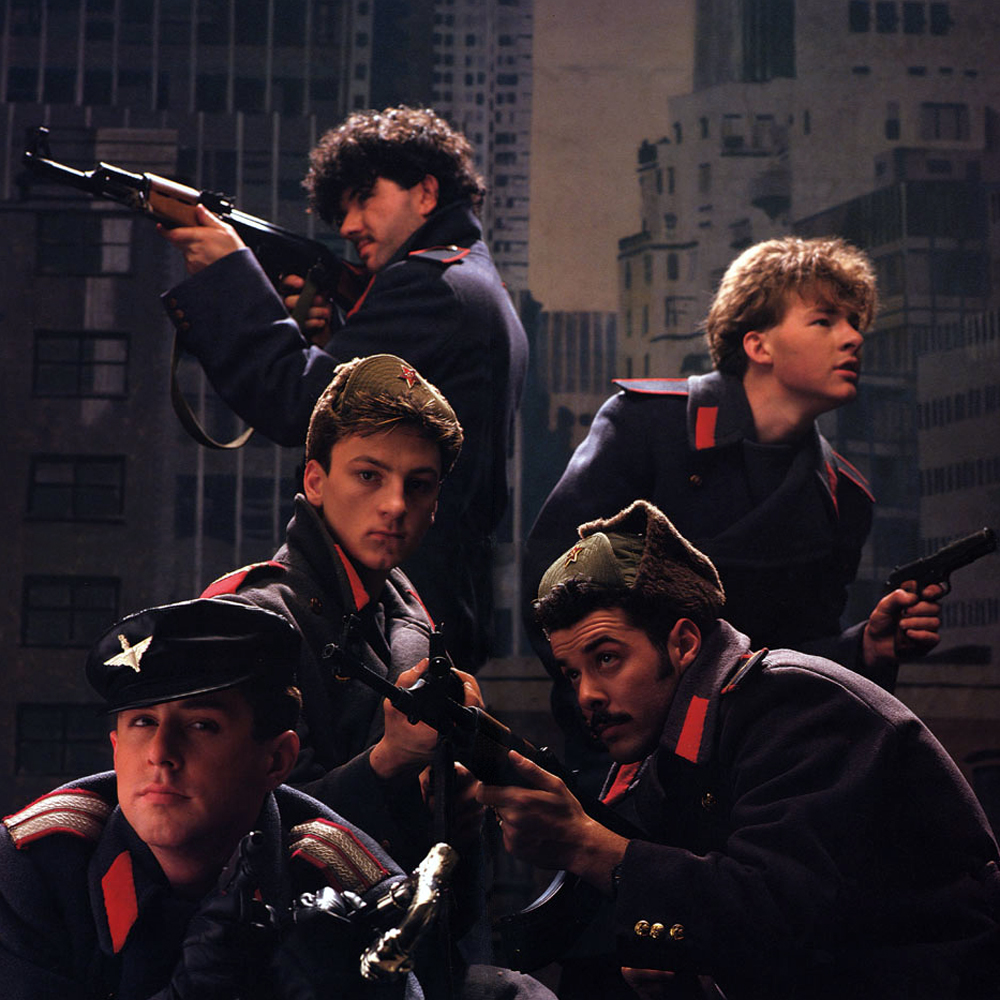 I had a relationship with Bob [Geldof] and Paula [Yates]. They lived just up the road and I knew Paula especially from The Tube. Bob wanted Frankie to appear at Live Aid and he pursued me throughout our world tour trying to persuade me to perform. For some reason the band and our manager didn’t want anything to do with it. I was very keen to do it. For Band Aid, from a hotel room in Chicago, I did that voice down the line. You could say the band refusing to do Live Aid was the first nail in coffin of Frankie.
I had a relationship with Bob [Geldof] and Paula [Yates]. They lived just up the road and I knew Paula especially from The Tube. Bob wanted Frankie to appear at Live Aid and he pursued me throughout our world tour trying to persuade me to perform. For some reason the band and our manager didn’t want anything to do with it. I was very keen to do it. For Band Aid, from a hotel room in Chicago, I did that voice down the line. You could say the band refusing to do Live Aid was the first nail in coffin of Frankie.
How did your first solo singles in 1980 come about?
During the daytime at Eric’s we rehearsed. Tony Wilson was often found in the office with [Eric's promoter and DJ] Roger Eagle, with a strange aroma coming out of the office. Tony wanted something Eric’s had, a venue where music was played. Tony and Roger formulated the idea of a label - the idea that would eventually be Factory Records - but for some reason it didn’t happen at that point. Eric’s formed its own label and released Big in Japan. After Big in Japan folded Jayne Casey championed me, got studio time and they paid for first single, “Yankee Rose”. A bit later Ian Brody helped me out with [the second single] “Hobo Joe”. I was never happier than when I was told I was releasing a single as an 18-year-old. One of the great moments of my life.
Listen to "Hobo Joe"
Another must have been going on Top of the Pops?
Yes, everyone else I knew had been on there – Teardrop Explodes, Echo & the Bunnymen, but it really didn’t look like it was going to happen for me and I even applied for art college in September 1983, but by January ’84 “Relax” was a bona fide hit.
Did you used to hang out with Propaganda, another ZTT group who had bona fide hits, albeit not nearly as big as Frankie’s?
I loved hanging around with them. I had a German boyfriend and Susanne Freytag and Claudia Brücken would teach me words to say to him in German. I preferred hanging out with Propaganda than Frankie Goes To Hollywood. They had internal problems that were complicated by Claudia marrying Paul Morley. Can you imagine how weird it was for the members when she married the record company? But she was young.
I have a friend who interviewed her and says she’s lovely.
Some people say she’s very sweet, some people say she’s a handful – I’m sure they say the same about me.
Watch the video for "In and Out of Love" from Holly Johnson's new album Europa
Explore topics
Share this article
The future of Arts Journalism
You can stop theartsdesk.com closing!
We urgently need financing to survive. Our fundraising drive has thus far raised £49,000 but we need to reach £100,000 or we will be forced to close. Please contribute here: https://gofund.me/c3f6033d
And if you can forward this information to anyone who might assist, we’d be grateful.

Subscribe to theartsdesk.com
Thank you for continuing to read our work on theartsdesk.com. For unlimited access to every article in its entirety, including our archive of more than 15,000 pieces, we're asking for £5 per month or £40 per year. We feel it's a very good deal, and hope you do too.
To take a subscription now simply click here.
And if you're looking for that extra gift for a friend or family member, why not treat them to a theartsdesk.com gift subscription?
more New music
 Album: Mocky - Music Will Explain (Choir Music Vol. 1)
Is the Canadian polymath hiding behind his exquisite production and arrangement skill?
Album: Mocky - Music Will Explain (Choir Music Vol. 1)
Is the Canadian polymath hiding behind his exquisite production and arrangement skill?
 Album: Brìghde Chaimbeul - Sunwise
A singular sonic auteur reshapes traditional Celtic music
Album: Brìghde Chaimbeul - Sunwise
A singular sonic auteur reshapes traditional Celtic music
 Music Reissues Weekly: Rupert’s People - Dream In My Mind
How ‘A Whiter Shade of Pale’ transformed a London mod-pop band
Music Reissues Weekly: Rupert’s People - Dream In My Mind
How ‘A Whiter Shade of Pale’ transformed a London mod-pop band
 Album: JF Robitaille & Lail Arad - Wild Moves
A set of graceful, wry melancholy from an Anglo-Canadian singer-songwriter duo
Album: JF Robitaille & Lail Arad - Wild Moves
A set of graceful, wry melancholy from an Anglo-Canadian singer-songwriter duo
 Album: Lorde - Virgin
Sombre self-examination and scratchy cellos fail to ignite on the New Zealander's new LP
Album: Lorde - Virgin
Sombre self-examination and scratchy cellos fail to ignite on the New Zealander's new LP
 Album: Bruce Springsteen - Tracks II: The Lost Albums
The Boss: Finding joy in imperfections
Album: Bruce Springsteen - Tracks II: The Lost Albums
The Boss: Finding joy in imperfections
 Brad Mehldau Trio, St George's Bristol review - exquisite intelligence
A brilliant trio in scintillating conversation
Brad Mehldau Trio, St George's Bristol review - exquisite intelligence
A brilliant trio in scintillating conversation
 Ian Leslie: John and Paul - A Love Story in Songs review - help!
Ian Leslie loses himself in amateur psychology, and fatally misreads The Beatles
Ian Leslie: John and Paul - A Love Story in Songs review - help!
Ian Leslie loses himself in amateur psychology, and fatally misreads The Beatles
 Album: BC Camplight - A Sober Conversation
Brian Christinzio exorcises childhood trauma
Album: BC Camplight - A Sober Conversation
Brian Christinzio exorcises childhood trauma
 theartsdesk on Vinyl 91: Sex Pistols, Pink Floyd, Tropical Fuck Storm, Sparks, The Sisters of Mercy and more
The vastest regular record reviews in the galaxy
theartsdesk on Vinyl 91: Sex Pistols, Pink Floyd, Tropical Fuck Storm, Sparks, The Sisters of Mercy and more
The vastest regular record reviews in the galaxy
 Album: Durand and the Indications - Flowers
Languorous neo-soul to chill by
Album: Durand and the Indications - Flowers
Languorous neo-soul to chill by
 Music Reissues Weekly: The Sonics - High Time
Handsome box set of seven-inchers celebrating the ferocious Sixties rockers
Music Reissues Weekly: The Sonics - High Time
Handsome box set of seven-inchers celebrating the ferocious Sixties rockers

Add comment